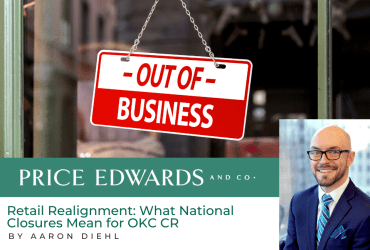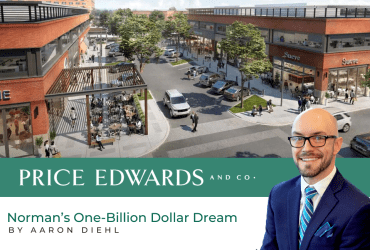
Leasing retail space can be challenging for the first-time tenant given an unfamiliar process, real estate terms you aren’t familiar with, and seemingly complicated documents. Allow me to pull back the curtain on what I’ve experienced as the biggest surprises to first-time retailers that are looking to lease their first commercial space.
Why do I need insurance?
Yes, you need insurance. The landlord has property insurance on the whole property. Typically, this expense is passed on to the tenant for their portion of the entire building’s insurance in the form of a net expense or a NNN expense (I’ll get to that in a second). But here’s the curve ball – you as a tenant ALSO have to have insurance both for the contents of your space and liability insurance that lists the Landlord as an additional insured. The question always comes up as to whose insurance covers what – this will be detailed in the lease agreement. Talk to your business insurance provider about a policy that covers your business, property, and general liability.
What are NNN's?
I wish “NNN” came with an Asterix letting people know their rate will be slightly higher than advertised. In a NNN lease what we often call your ‘rent’ is actually your base rent, plus your pro-rata share of the Landlord’s property taxes, plus your pro-rata share of the Landlord’s Property Insurance, PLUS your pro-rata share of the Landlord’s property common area maintenance expense. Now that sounds like a lot…and it’s certainly a lot to write, so the industry developed the shorthand NNN or “Triple Net” because once your remove these operating expenses the NET will be the effective operating income on the property. Just know this - if you see “NNN” associated with a cost per square foot, you can safely assume that your actual payment, base rent and NNN’s, will be higher. A typical property will be $2 to $5 per square foot, but it can be even higher for newer properties. See your friendly neighborhood Price Edwards Broker more details.
Why does my rent go up? We negotiated a rate.
Rent seems like it always goes up….the reality is that rent is generally set by the market…meaning the supply and demand for space. But all space isn’t the same…there’s typically a greater demand for corner spaces and outparcels. Then there are busier streets and higher visibility and areas of town with better demographics that all factor into rate. Not to mention that property owners are in the business of making money. The best answer for you is to, one, do your homework; and, two, use a professional broker to help you navigate the process.
Can I get a discount on my starting rent?
Great question and a wonderful sign of a creative problem solver who is willing to negotiate and compromise. Sometimes you can get a discount on your first few months while setting up shop. But there is another way to still get a discount upfront if you are comfortable paying higher rent later on. Let’s say you find a space for $20/SF, but your first-year budget is $18/SF. Simply graduate the rate over a 5-year deal. Year 1: $18/SF, Year 2: $19/SF, Year 3 $20/SF, Year 4 $21/SF, Year 5L: $22/SF. This achieves the Landlord’s goal of guarding against inflation, achieves the tenant’s goal of a lower starting rent, and gives the landlord an overall lease value of $20/SF. Win-Win-WIN. (I may have done this more than once in my career)
Why should I pay that much if the space has been vacant for so long?
Vacancy? Nothing tickles me more than a tenant asking, “How long has this space been vacant?” It’s a common tactic of someone looking for a discount. How long the space has been vacant will rarely earn a discount. Instead, I would suggest asking how long the previous tenant was open or why they chose to leave – that has a better chance of uncovering information you actually need to hear as a retailer.
I don't want to sign a personal guarantee.
Personal guaranty – Why do you have to personally guarantee the lease if you have an LLC setup? Well, it’s because you have an LLC setup. Having an LLC or other legal entity is a wonderful security check for your growing business because it separates your personal assets and obligations from your business obligations. Newer retailers may not have the business credit to demonstrate the ability to pay bills so many landlords (and by many I mean most) require a personal guarantee from at least one of the Principal Operators of the Tenant’s business. The personal guarantee is usually tied to the Principal Partner with the money to fund the business – and NO you are not allowed to tie the personal guarantee to the store’s part-time manager or your sister’s cousin’s nephew’s former roommate who is going to “help you and consult”. Sorry folks it doesn’t work that way. The personal guarantor has to be tied to the business and to the Lease in a legally binding way that allows the Landlord to seek reparations in the even the Tenant goes out of business or declares bankruptcy.
I'm not buying a house or a car- why do I need to do a credit check?
Credit check? Yup you need one of those too. It’s the landlord’s due diligence. It is just a fail-safe to see if you pay your bills, if you pay them on time, and if there are any additional risks to consider when leasing a building to a new retailer. You don’t have to have perfect credit to lease a space, but you have to be able to demonstrate That on the first of the month that you are ready, willing, and able to pay your rent. Also be willing to explain any issues in your financial history BEFORE the landlord asks. No one likes surprises… not even landlords.
Leasing a commercial space for the first time is a lot like getting your first car as a teenager. It takes money, patience, a credit check, a little bit of prodding your financial backers for some help (maybe your parents), some insurance, some more money, and some skill in negotiations. The broker has a vested interest in your success, but it requires collaboration. Ask lots of questions of your broker and be honest about what you don’t know. Remember negotiations require collaboration and compromise so be flexible and patient without losing your resolve.









